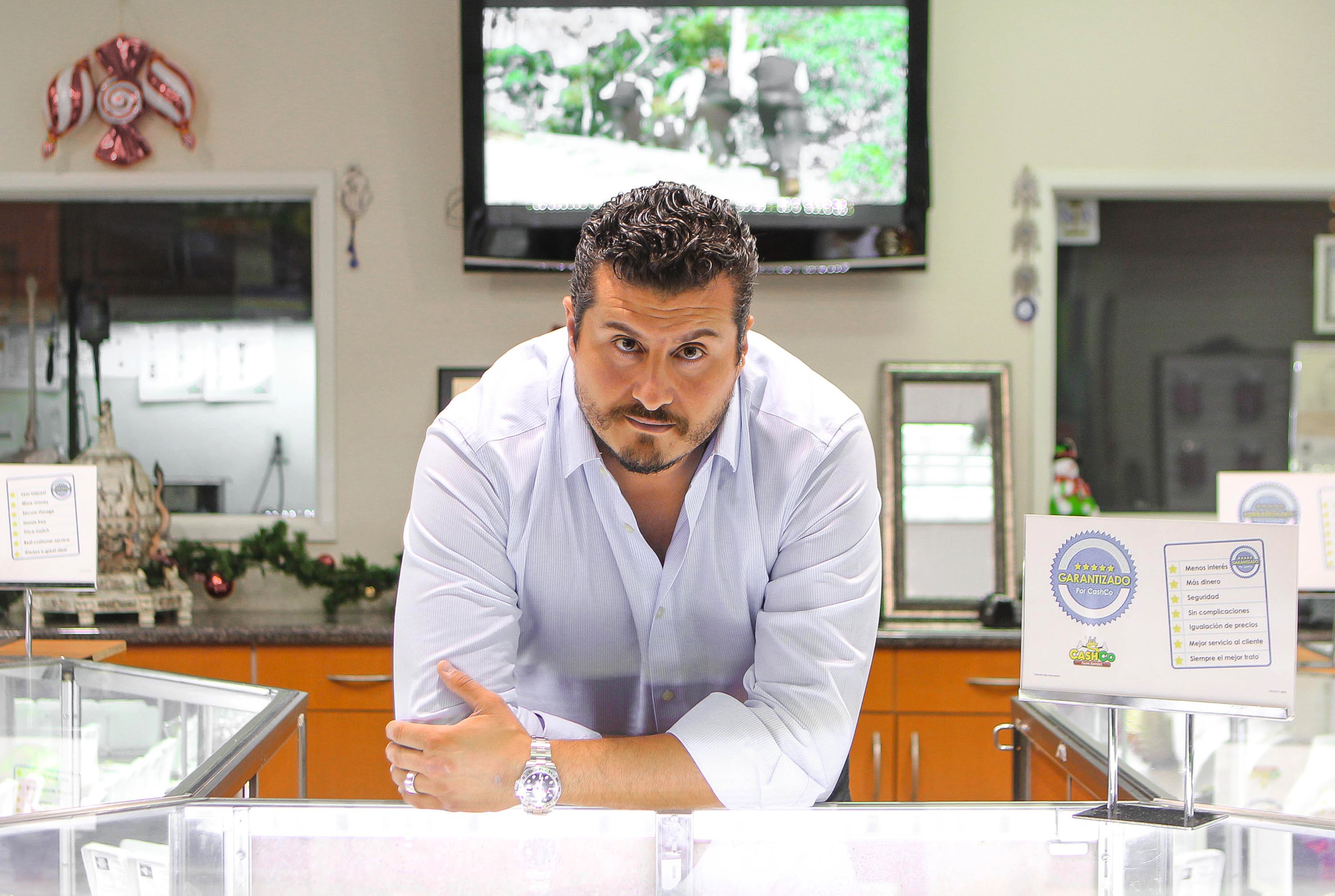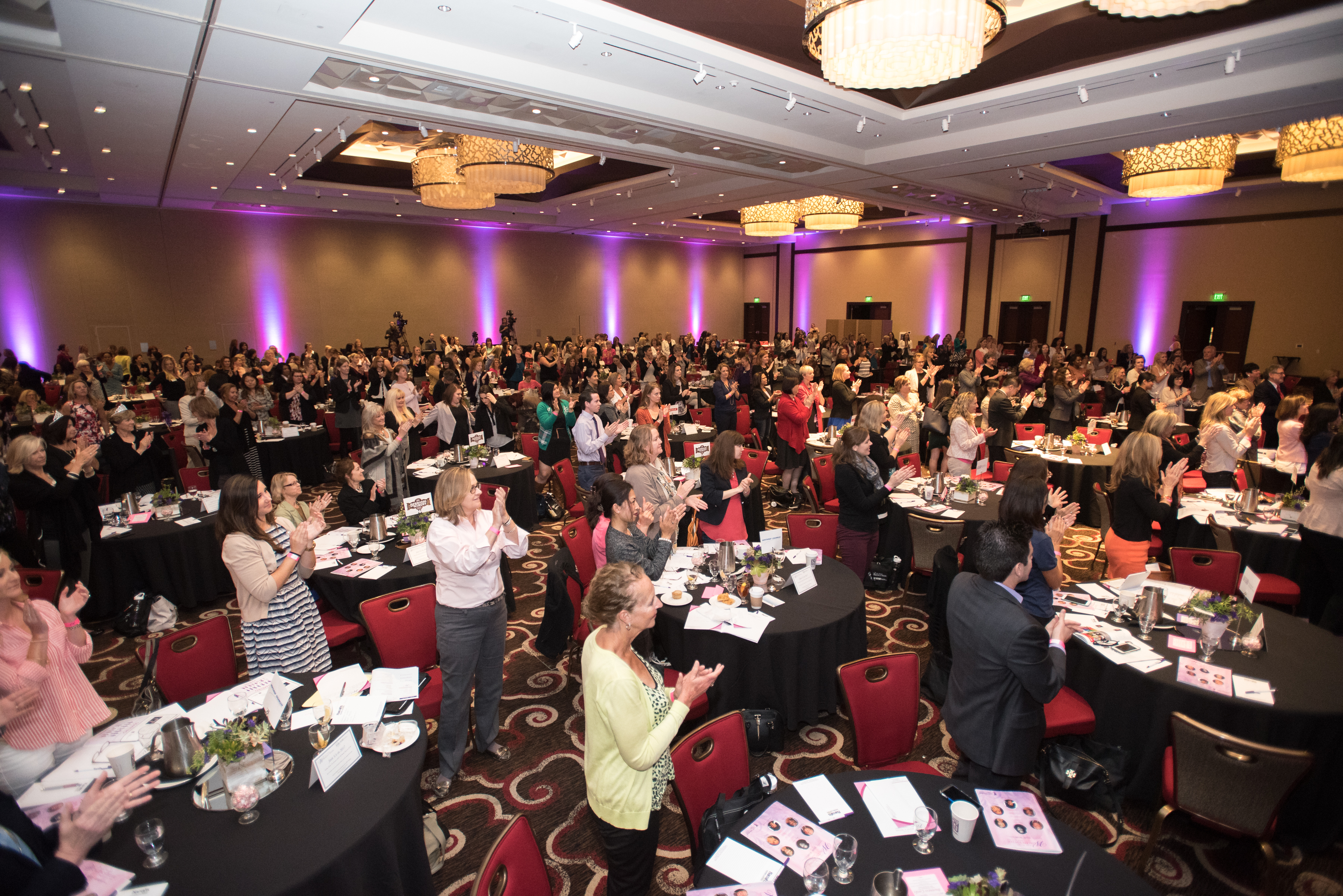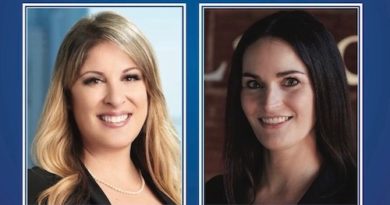Asset-Backed Loans
Would you borrow money from this man? Many have. CashCo owner Moris Adato is a player in the emerging field of asset-backed loans.
A new way of borrowing money
By Delle Willett
Most people don’t like to be in situations where they need to borrow money, and when they do, they often have little choice beyond asking their rich uncle for the 10th time.
And it’s even more challenging if they don’t have the usual assets to borrow against such as a home, auto, savings, investments, securities, and life insurance policies.
Fortunately, a new source of capital is available and gaining in popularity.
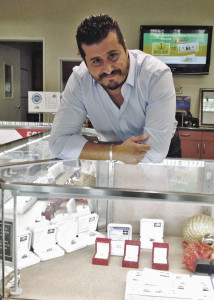
CashCo will also take art, collectibles, and memorabilia if they have certificates of value and authenticity, said owner Morris Adato. (Photo/Delle Willett)
As credit tightened after 2008, a number of personal-asset lenders started offering pawn-type loans to individuals and small-business owners.
Usually online, these lenders will take personal luxury assets like gold, diamond jewelry, luxury watches, classic cars, a wine or art collection, motorbikes, Fender guitars, stretches of timberland, super yachts, high-speed aircraft, precious metals/stones, sports memorabilia, antiques, designer purses, accounts receivable and inventory as collateral for a short-term personal or business loan.
Luxury, asset-based loans can be a much-needed source of capital for companies that are rapidly growing, highly leveraged, and in the midst of a turnaround.
Sometimes a company simply needs that fusion of cash to get over a financial hump, prevent growth from faltering, or seriously damage their credit scores.
The transactions are often completed within 24 hours and they don’t require a credit check. The asset secures the loan and there’s no personal guarantee. If the borrower defaults on the loan, he loses his asset.
Loan amounts range from $1,000 to $2 million at loan rates as low as 2 percent.
With luxury-backed loans borrowers do not have to contend with:
• Credit checks
• Income verification
• Financial reviews
• Prepayment penalty
Regardless the asset, there’s a few strings attached:
• Luxury assets have to be able to be readily shipped to lenders to their secure storage locations.
• The lenders only lend a portion of the asset’s total worth.
• If the borrower cannot repay the loan, he promises to surrender the asset to the lender.
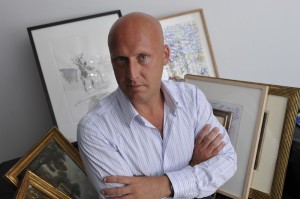
All of the items are generally stored as well as insured in specialist premises and vaults for the entire duration of the loan.
Banks and other financial institutions are focused on banking wealthy families, and are encouraging some of these loans, particularly for art. They don’t provide these luxury-asset loans unless the borrower has several million on deposit. The same for auction sites, galleries or antique dealers.
U.S. Trust, the private wealth management arm of Bank of America that oversees around $350 billion in assets, says its portfolio for art-backed loans grew 25 percent in both 2012 and 2013. Its loans can range from $3 million to $56 million in value; and a typical borrower would already have an art collection worth at least $10 million.
A survey of San Diego’s banks did not turn up any bank that offers this lending program, although John Massab, executive vice president and chief credit officer of Torrey Pines Bank, said the bank is willing to look at it.
An alternative to bank loans is online, luxury-asset lenders such as Borro, which is a platform for providing liquidity against high-value goods.
Positioning itself to be the leading luxury-asset lender, Borro offers small business owners, entrepreneurs and high-net worth clients loans from $5,000 to $2 million against assets.
Borro’s online platform allows loans to be provided within 24 hours, with no income or credit checks and at a lower cost than if a client were to sell his or her luxury assets. Loans can be paid back sooner than the loan term without early repayment penalties.
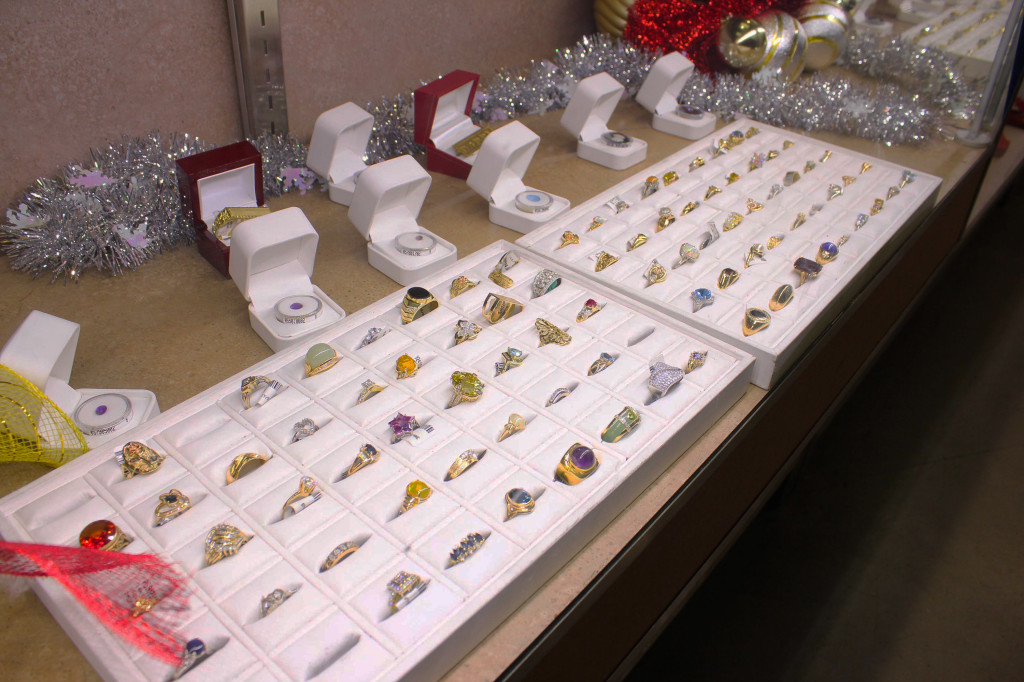
Upon receiving an application, Borro offers appointments at their office and valuation center, home visits, and various premium collection options including same-day couriers. All of these services are fully insured and provided for by Borro, which is based in New York City, with recently opened offices in Los Angeles.
The assets are stored in secure and insured specialist vaults/premises. Fine art and antiques are stored at fine-art storage specialists and luxury cars are stored in climate-controlled premises. All assets are fully insured while in storage with Borro for the duration of the loan.
The loan term is six months, but the customer has the right to renew the loan by paying off the interest at which point the loan term begins again.
About 60 percent of Borro’s business comes from small business owners who use the service for a liquidity solution. The average loan is $35,000, and it has issued over $150 million in loans since launch.
Borro has loaned close to $20 million against almost 400 cars, the collection including a Mercedes-Benz SLR McLaren, a Ferrari California, a Lamborghini Diablo, an Aston Martin Vanquish and a Rolls-Royce Ghost.
The company loaned $1.2 million for a signed Claude Monet painting; $226,000 for a Harry Houdini collection; $51,000 for Beatles memorabilia; and $18,000 for Steve McQueen’s vintage motorcycle jacket from the film “Bullit.”
“California is a perfect demographic match for the customers we serve and has enormous growth potential. While the economy is recovering globally, many times banks aren’t as responsive as customers would like so people are looking for alternative funding sources,” said Paul Aitken, CEO of Borro. “We provide a discreet option in the form of loans based on expert asset evaluations on a variety of luxury items.”
Another alternative for small businesses to obtain cash with collateral is pawn shops. Ninety-five percent of businesses are small and they need small loans.
Pawn shops offer the customer roughly half of the item’s wholesale value, or about one fourth of what they can re-sell it for in a store.
In recent years, some pawn shops have improved their image, with a newer, cleaner appearance, resulting in a more professional looking shop, often located in a better part of town, with a knowledgeable and professional staff focused on friendly customer service.
A good example of this upgraded breed of pawn shops is CashCo, with three locations in City Heights, Encanto and Escondido.
Owner Moris Adato, 40, has 24 years in the industry, starting from cleaning and polishing jewelry to cleaning floors, setting up merchandise, getting his Gemological Institute of America (GIA) degree, and doing retail/wholesale business importing diamonds.
In business for 13 years as CashCo, Adato currently has 35 employees who help customers from their community: gardeners, small car dealers, at-home businesses, restaurants, caterers and more.
Adato has two gemologists and 14 jewelry experts on staff who have gone through training at GIA.
CashCo takes just about everything but firearms; 75 percent to 80 percent of its business is jewelry. Tools, especially welding equipment, can yield high loans. It doesn’t take the big items for lack of room, but Adato is looking at a location with larger storage capacity.
The largest item he’s ever taken in is an industrial floor cleaner. “Big stuff doesn’t necessarily mean big profits. I can get more for a gold chain,” said Adato.
CashCo will also take art, collectibles, and memorabilia if they have certificates of value and authenticity.
Everything for sale in the store is also for sale online at the same time. The items that don’t sell are sold to wholesalers.
CashCo’s loans have been as low as $5, but average between $3,000–$5,000, with the largest to date being $60,000. By California law, the interest rate is 2.5 percent to 4.5 percent, depending on how much the customer gets for the item. 80 percent of its customers take out two or more loans a year.
To pay off their loan, legally, the customer has four months plus 10 days in California. Adato gives 30 days extra because “things happen.” Then the owner has some options: let the item go, pay the interest to get it back, or take out another loan. Ninety percent of the customers either redeem or roll over their loans and eventually take the item back. 10 percent lose the merchandise.
“Our business customers pawn for different reasons: to cover payroll, to buy food and decorations for a catered event, to pay the rent, to buy groceries, to complete the purchase of property, to pay Christmas bonuses,” said Adato.
“Sometimes an initial investment to get a business going is as small as $600.”
Adato, who has helped a lot of businesses get started and still sees them 10 years later. “Most people who start small businesses just have a dream,” he said. “They don’t have money or credit but they have valuables that can get them the initial capital to make their dream come true. That’s why we are here.”

